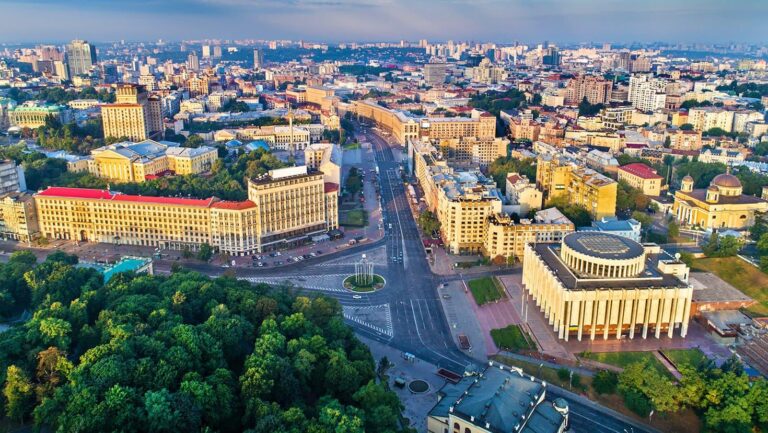In a stark address to the United Nations, Ukrainian President Volodymyr Zelenskyy warned that his country’s struggle could be the beginning of a wider conflict threatening global stability. Speaking amid ongoing hostilities in Ukraine, Zelenskyy emphasized that the war is not an isolated crisis but a warning sign of broader challenges confronting the international community. His remarks at the UN underscored the urgency of collective action to counter escalating security threats that could extend far beyond Europe.
Ukraine’s Conflict Signals a Broader Global Security Crisis, Zelenskyy Warns
President Zelenskyy emphasized during his address to the United Nations that the ongoing conflict in Ukraine is far from an isolated incident. He warned that the crisis represents a grim warning about the vulnerabilities of global security frameworks and the rising threat of geopolitical instability. Stressing the interconnected nature of current conflicts, Zelenskyy highlighted how regional tensions can quickly escalate, endangering peace and security beyond national borders.
The Ukrainian leader outlined several key challenges facing the international community today, urging coordinated and decisive action:
- Rising authoritarianism and aggressive territorial ambitions
- Breakdown of diplomatic norms and disregard for international law
- Escalation of proxy conflicts and cyber warfare
- Global economic disruption fueled by prolonged conflicts
| Threat | Potential Impact | Suggested Response |
|---|---|---|
| Territorial Expansionism | Destabilization of borders | Strengthen alliances |
| Cyber Warfare | Critical infrastructure disruption | Enhance cybersecurity cooperation |
| Proxy Conflicts | Wider regional instability | Facilitate diplomatic dialogue |
| Economic Sanctions Impact | Global market volatility | Promote economic resilience |
Urgent Call for International Unity and Enhanced Defense Measures to Prevent Future Aggressions
Global solidarity is no longer optional but a critical necessity in the face of emerging threats that transcend borders. Addressing the United Nations, President Zelenskyy emphasized the need for a unified international front to deter acts of aggression that jeopardize peace and security worldwide. His message underscored that the conflict engulfing Ukraine serves as a stark warning-without collective vigilance and decisive action, similar crises could erupt elsewhere, pushing the world closer to widespread instability.
To fortify defenses against such dangers, countries must embrace enhanced cooperation and invest in modernized military capabilities, intelligence-sharing networks, and rapid response mechanisms. Key elements of this strategy include:
- Robust diplomatic engagement to resolve disputes before they escalate
- Joint military exercises to ensure interoperability among allied forces
- Cybersecurity initiatives to protect critical infrastructure
- Humanitarian support systems for populations affected by conflict
| Measure | Impact | Timescale |
|---|---|---|
| Joint Intelligence Sharing | Enhanced threat detection | Immediate |
| Expanded NATO Cooperation | Stronger defense postures | 6-12 months |
| Cyber Defense Upgrades | Infrastructure resilience | Ongoing |
| Diplomatic Peace Talks | Conflict de-escalation | Short-term |
Strengthening Global Institutions and Diplomatic Channels as Key Strategies to Address Emerging Threats
As global tensions escalate, the imperative to bolster international institutions and diplomatic frameworks has never been clearer. Robust multilateral organizations provide the backbone for coordinated responses to complex crises, ranging from territorial conflicts to cyber threats and climate-induced instability. Strengthening entities like the United Nations, NATO, and regional alliances ensures rapid dialogue, reduces misunderstandings, and creates enforceable norms that deter aggressive actions before they escalate. Investment in diplomatic channels not only facilitates conflict resolution but also builds trust among nations, preserving global security and stability.
Key strategies include enhancing early warning systems, expanding peacekeeping mandates, and promoting inclusive dialogue platforms that engage all stakeholders – governments, NGOs, and civil society alike. Highlighting this, Zelenskyy’s recent addresses underscore the urgency of preventative diplomacy amid spreading geopolitical risks. The table below illustrates practical measures and their projected impact on international security:
| Strategy | Purpose | Expected Outcome |
|---|---|---|
| Strengthened UN Mediation | Neutral Conflict Resolution | Reduced armed escalations |
| Expanded Intelligence Sharing | Early Threat Detection | Faster crisis intervention |
| Inclusive Diplomatic Forums | Broadened Stakeholder Engagement | Enhanced global cooperation |
| Capacity Building in Fragile States | Resilience Against Instability | Long-term peace support |
Insights and Conclusions
As the international community grapples with the ongoing conflict in Ukraine, President Zelenskyy’s stark warning underscores the broader implications of regional instability in a highly interconnected world. His call to action serves as a reminder that the challenges faced by Ukraine are not isolated but part of a wider pattern of emerging global threats. The response from the UN and its member states in the coming months will be pivotal in shaping the future of international security and upholding the principles of sovereignty and peace.




